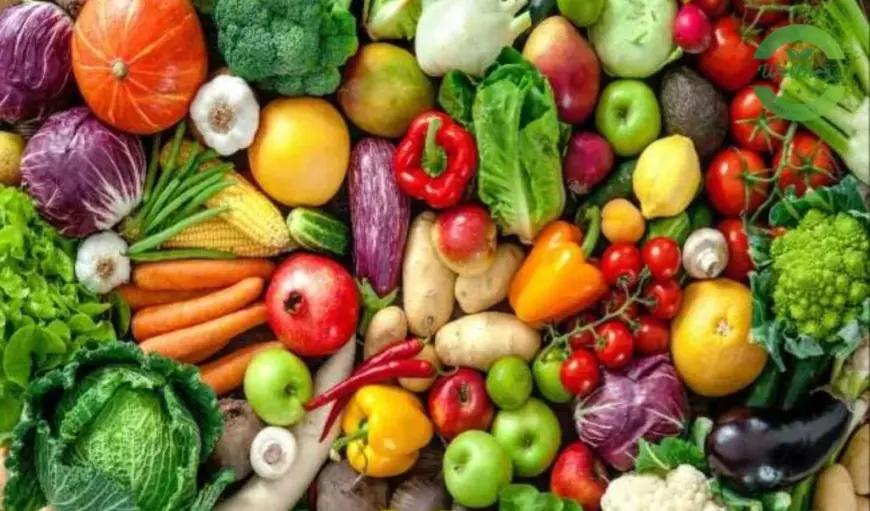How to Choose the Best Organic Food for Your Diet
Discover the best organic food for your diet! Enjoy healthier, fresher options with the benefits of organic produce for a balanced lifestyle.

Numerous individuals seeking to reduce their ecological impact and improve their well-being are opting for organic cuisine. Deciding which foods to select can sometimes be overwhelming because of the increasing variety of organic choices on the market. Organic produce is a more nutritious and natural alternative to traditionally cultivated food, as it is cultivated without synthetic fertilizers, pesticides, or genetically altered organisms. This article provides tips on how to choose the most nutritious organic options for your meals.
1. Understand the Benefits of Organic Food
Understanding the reasons for selecting organic food is essential before delving into the specifics of how to make that choice. There are numerous health benefits and ecological advantages associated with consuming organic products. Since organic foods are free from harmful chemicals, your body can accumulate fewer toxins. Additionally, they often have increased amounts of vitamins and antioxidants, which are vital for preserving good health. Moreover, organic farming practices utilize less energy, promote biodiversity, and reduce soil degradation, making them more sustainable for the environment.
2. Prioritize Organic Vegetables and Fruits
Prioritizing fruits and vegetables is a smart option when choosing which organic foods to include in your diet. Since conventional farming usually uses the greatest pesticides on produce, organic solutions are particularly crucial. Eating organic vegetables has many advantages; they are cleaner and more nutrient-dense because organic cultivation does not utilize dangerous chemical pesticides. Choose fruits and vegetables like strawberries, spinach, apples, and tomatoes that are more likely to retain pesticide residues when grown traditionally.
3. Check for Certification
To ensure the food you’re purchasing is truly organic, always look for certification labels. In the U.S., for instance, look for the USDA Organic seal. This certification means that the food has met the standards for organic farming, including the prohibition of synthetic chemicals, GMOs, and the use of antibiotics or hormones in animal products. Whether you're buying fruits, vegetables, grains, or meat, the organic certification ensures you're getting high-quality, authentic organic food.
4. Consider Local and Seasonal Organic Produce
Buying local organic produce can be a great way to support your community while enjoying fresh, seasonal foods. Local farms often offer organic options that might not be available in larger grocery stores. Moreover, seasonal produce is typically fresher and more flavorful, making it a smart and cost-effective choice for your organic diet. Depending on where you live, consider visiting local farmers' markets to explore organic options and ask questions about farming practices directly from the growers.
5. Buy Organic Meat and Dairy
While organic fruits and vegetables are the first priority. It’s also important to consider organic animal products, including meat, poultry, dairy, and eggs. The benefits of organic vegetables are widely known, but consuming organic meat and dairy can also help reduce exposure to hormones and antibiotics commonly used in conventional farming. Organic livestock are raised in conditions that promote better welfare, and they are fed organic feed free from synthetic chemicals.
6. Don't Stress About Everything Being Organic
While choosing organic is a great step toward a healthier lifestyle. It’s important not to stress about having an entirely organic diet. Some non-organic foods may be perfectly safe, especially if they have a thick peel or skin, such as bananas or avocados, which are less likely to carry pesticide residues. Focus on making the switch to organic in areas that have the highest impact on your health, like produce, and consider buying other items conventionally when necessary.
7. Consider Your Budget
Organic foods can sometimes come with a higher price, which may not be feasible for everyone. If you’re on a budget, prioritize purchasing organic versions of the “Dirty Dozen”—the fruits and vegetables most likely to contain pesticide residues. For other items, consider purchasing conventional options, or look for sales and discounts on organic products. Many stores offer discounts on organic items, especially when they are in season.
Conclusion
Selecting the best organic foods for your diet requires knowing the advantages of eating organic, figuring out which foods are the most beneficial in their organic form, and keeping your spending in check. You can make wise and healthful decisions that support your objectives by emphasizing organic vegetables, giving local produce priority, and reading certification labels. You may increase the amount of organic food in your diet and enjoy the associated health advantages with a little work and education.












